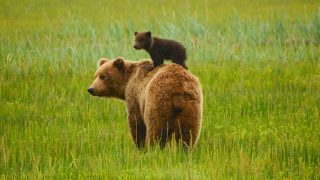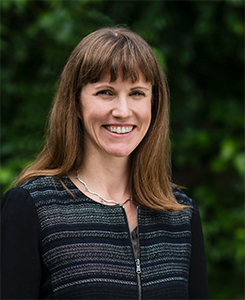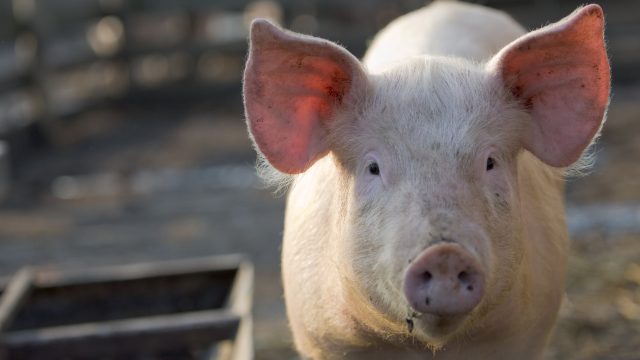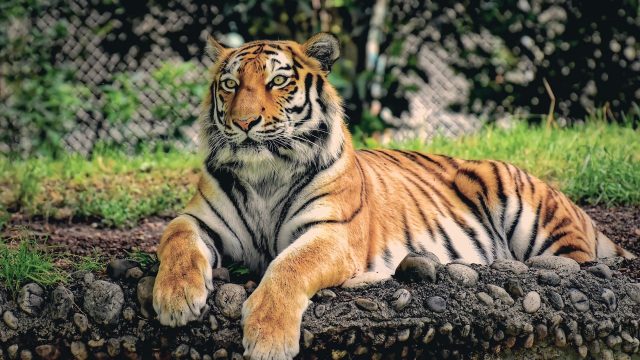
Where Are They Now? Spotlight on Jessica Almy
In this continuing series of updates on former Student Animal Legal Defense Fund (SALDF) members, the Animal Legal Defense Fund is proud to spotlight graduates protecting animals through the legal system.
Where did you go to law school and when did you graduate?
New York University School of Law, 2009
Current position and organization:
Policy Director, The Good Food Institute
How long have you been in your current position?
Since June 2017
What do you do in your current position?
The Good Food Institute (GFI) is a nonprofit organization focused on making plant-based and clean meat, dairy, and eggs as delicious, price-competitive, and convenient as possible. I oversee GFI’s work to create a better future of food through regulatory and statutory reform in Washington. Our goal is to ensure a level playing field for plant-based and clean meat.
Have you had any other work experiences in animal law (or animal protection generally) since graduating law school?
From 2009 to 2013, I worked for Meyer Glitzenstein & Crystal (now Eubanks) representing animal protection, environmental, and other nonprofit organizations in impact litigation. I had cases that sought to restore Endangered Species Act protections to a flying squirrel, ensure that a power plant adequately consider impacts to migratory birds and marine mammals, and stop a deer cull in a national park.
I have also volunteered for several years for the Vegetarian Society of D.C. As the oldest continuously running vegetarian society in the United States, VSDC plays an important role in creating a community for vegans and other people who are interested in plant-based diets—including children, teens, and adults.
When did you take an interest in helping animals?
You could say that animal protection is in my blood. My mother started the animal shelter in my hometown when she was pregnant with me, and I grew up alongside rescued and foster animals. Following in her footsteps, I started animal protection clubs in my high school and college, and I led successful campaigns for a written dissection choice policy in my high school and vegetarian options in my schools’ cafeterias.
In 2002, I earned my master’s degree in Animals and Public Policy from Tufts University, and I then worked for the Humane Society of the United States until I went to law school.
What did you study in undergrad, and what school did you attend?
Communications and French, Gordon College
What got you interested in pursuing a law degree?
When I worked for HSUS, I led a campaign to end pheasant stocking on the Cape Cod National Seashore. Pheasant stocking in this case meant that the state wildlife agency dumped farm-raised birds on the seashore on Friday nights to be shot by hunters the next day. When the seashore’s advisory committee did not reach a consensus to end the practice, we sued under the National Environmental Policy Act, ultimately forcing the seashore to prepare an Environmental Impact Statement. That lawsuit—brought by Jonathan Lovvorn and Kimberly Ockene, then attorneys at Meyer Glitzenstein—inspired me to go to law school.
When you were involved with SALDF, what position(s) did you hold and what sort of activities and events did you help with and/or spearhead?
I was co-chair of NYU’s SALDF. We successfully campaigned to eliminate eggs from battery-caged hens from the law school café, and we got the rest of the cafeterias on campus to switch to cage-free liquid eggs. We also hosted great events! My favorite was an annual half-day workshop: themes for 2007-2009 were environmental approaches to animal litigation, the crossroads between First Amendment law and animal law (following the United States v. Stevens decision), and the use of consumer laws to protect animals.
How did being involved with SALDF play a role in your education and career?
Law school was challenging for me. I had a baby at home and limited time. But SALDF helped me focus on my ultimate goal—to help animals—and gave me an opportunity to plan events that featured the lawyers doing the most exciting work in the field.
Any other noteworthy law school experiences, internships, etc.?
NYU has an environmental law clinic with the Natural Resources Defense Council. I was fortunate to have the opportunity to work with Nancy Marks, a senior attorney on the litigation team. That experience helped prepare me for practice.
What do you hope to accomplish in your work for animals (and/or is there an accomplishment thus far you are particularly proud of)?
When Richard Branson invested in Memphis Meats—a company making clean meat without factory farms and slaughterhouses—he predicted that in thirty years, we won’t need to kill animals to eat meat. Instead, meat will be plant-based or clean. I want to do everything in my power to help get us there.
What has been your biggest challenge?
The biggest challenge is that there is so much work to do and the stakes are so high! What we invest in plant-based and clean meat now—in terms of time and funding—will determine whether we eliminate factory farming in our lifetime.
Anything you’ve learned that you would like to share with others considering a similar path?
One thing that’s been helpful to me on my path has been to pursue other interests that align with my long-term career goals. For example, I also care about nutrition and poverty alleviation, so I spent four years working for the Center for Science in the Public Interest and I did a peer-to-peer fundraising campaign for Oxfam America. Those experiences were worthwhile in their own right, and they also allowed me to develop diverse skills that I’m putting to use now.
What do you like best about working in this field?
I like working in a field that’s so new, because it’s intellectually demanding. You can’t just look to what others have done. You need to find your own way.
What advice would you give law students who are considering a career in animal law?
Take opportunities that allow you to be as effective as possible. Choose your employer based on what you can expect to accomplish there. Especially early in your career, it’s better to invest in developing important skills through substantive work than to have any particular job title.
Anything else you’d like to include?
The world can be bleak. It’s inspiring to know that law students and lawyers are working to make it a better place for animals—thank you.
How We Work
Recent News
-
Court Rules Texas Food Label Censorship Law is Unconstitutional
The law imposed unclear and vague standards on plant-based meat producers that violate the First AmendmentJanuary 29, 2026 Press Release -
Defend the Big Cat Public Safety Act
Urge your federal representative to oppose H.R. 7159, which aims to undo protections established by the Big Cat Public Safety Act, including by creating exemptions allowing direct contact with big cats, such as cruel cub petting. -
State Animal Protection Laws Ranked: Oregon is #1, North Dakota #50
20th edition of ALDF state and territory ranking report highlights major advancements & trends in animal protection across the U.S.January 27, 2026 News



